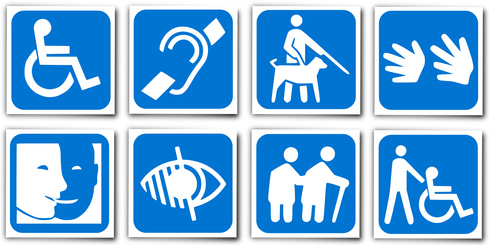
Your employer should make ‘reasonable adjustments’ for you.
If you have a disability, or suffer from a physical or mental health condition, your employer should ensure that you are not ‘substantially disadvantaged’ when doing your job.
These are some examples of reasonable adjustments that an employer should make:
At recruitment stage
It’s not a legal requirement to declare your disability before the interview, but it is a good idea so the employer can respond to your needs. You can then use the interview time to focus on why you’re the right person for the job.
- If you’re a wheelchair user, the employer should provide an interview room on the ground floor
- If handwriting is a challenge for you, they should allow you to complete any written tests using a computer
- If you’re deaf, ask them to provide a sign language interpreter
When you’re employed
To enable you to do your job, your employer could be obliged to change your working hours, make changes to the physical environment, or provide special equipment.
You should also be offered the same opportunities as all other employees, including training, recreation and refreshment facilities.
- If you have social anxiety disorder, you should be allowed your own desk instead of hot-desking
- If you’re deaf, they should install an audio-visual fire alarm
- If you use a wheelchair, they should install a ramp, and/or let you work on the ground floor
- If you have arthritis, they should provide you with a special keyboard
If you become disabled while employed
- Your employer should allow you to make a phased return to work, and offer flexible hours or part-time working
Other support available
In most of the UK, you can apply to Access to Work for a grant to support you. This might pay for help getting you to and from work, a support worker to help you get to meetings or answer the phone, and any adaptations or special equipment you need.
In Northern Ireland, ask your local Jobs & Benefits Office / Job Centre about the Steps 2 Success and Pathways to Work programmes.
What this means for you…
All workers are covered by the law against disability discrimination – even if you are a trainee, apprentice, contract worker or business partner.
If your employer has failed to make reasonable adjustments for your needs, have an informal discussion with them, and remind them of your rights. If that doesn’t work, try going through their standard grievance procedure.
If you’re still not satisfied, you may be able to make a claim against them – but act fast, because any claim to the Tribunal must be made within three months of date when the act of discrimination took place.
Need help?
For a FREE assessment of your claim, call 0808 168 7288 or fill in the contact form on the top right of this page.
We have already helped thousands of people to win millions of pounds in compensation.
You have a choice of ways to pay, including ‘no win, no fee’.
